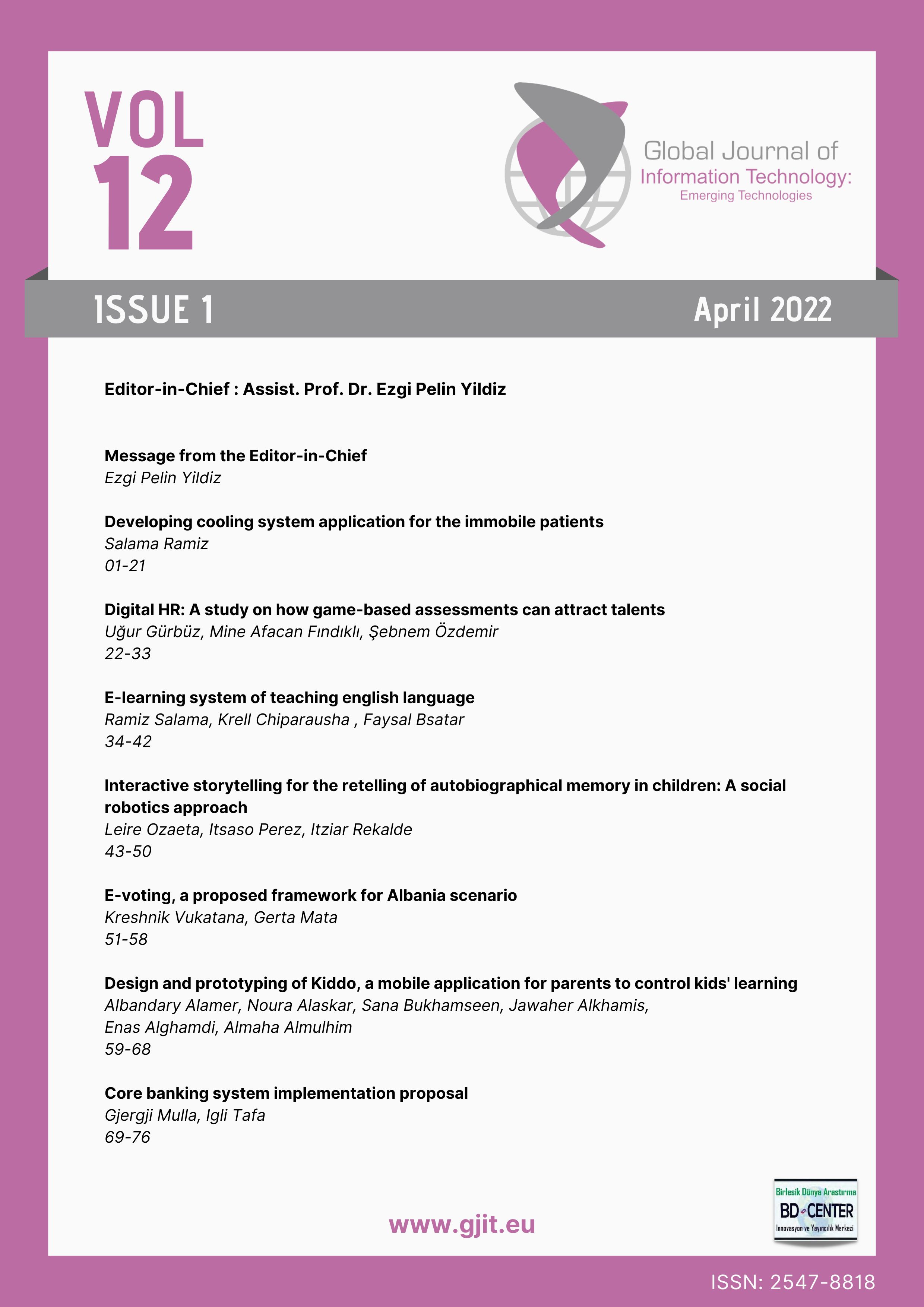Design and prototyping of Kiddo, a mobile application for parents to control kids' learning
Main Article Content
Abstract
A good and healthy seed will always produce a nice fruit, whereas an infected seed will produce an infected fruit. The same concept applies to children; the healthier the environment in which the kids grow, the more likely they become valuable members of society. Therefore, this study aimed to design an app that aims to enhance the communication between parents and their children and enrich the good habits of the kid. This paper will mainly discuss the proposed idea and its design, as also it is mentioning the app’s main functionalities. The Kiddo project introduces us to a mobile application that focuses on enhancing the sense of responsibility from a young age and makes raising kids fun and easy. Kiddo Application enables kids to share their accomplishments with their peers in an interactive environment full of enjoyment followed by parental monitoring to handle what their kids are posting and friends following.
Keywords: Educational app; Kiddo; Kids; parental control; social media.
Downloads
Article Details

This work is licensed under a Creative Commons Attribution 4.0 International License.
Authors who publish with this journal agree to the following terms:- Authors retain copyright and grant the journal right of first publication with the work simultaneously licensed under a Creative Commons Attribution License that allows others to share the work with an acknowledgement of the work's authorship and initial publication in this journal.
- Authors are able to enter into separate, additional contractual arrangements for the non-exclusive distribution of the journal's published version of the work (e.g., post it to an institutional repository or publish it in a book), with an acknowledgement of its initial publication in this journal.
- Authors are permitted and encouraged to post their work online (e.g., in institutional repositories or on their website) prior to and during the submission process, as it can lead to productive exchanges, as well as earlier and greater citation of published work (See The Effect of Open Access).
